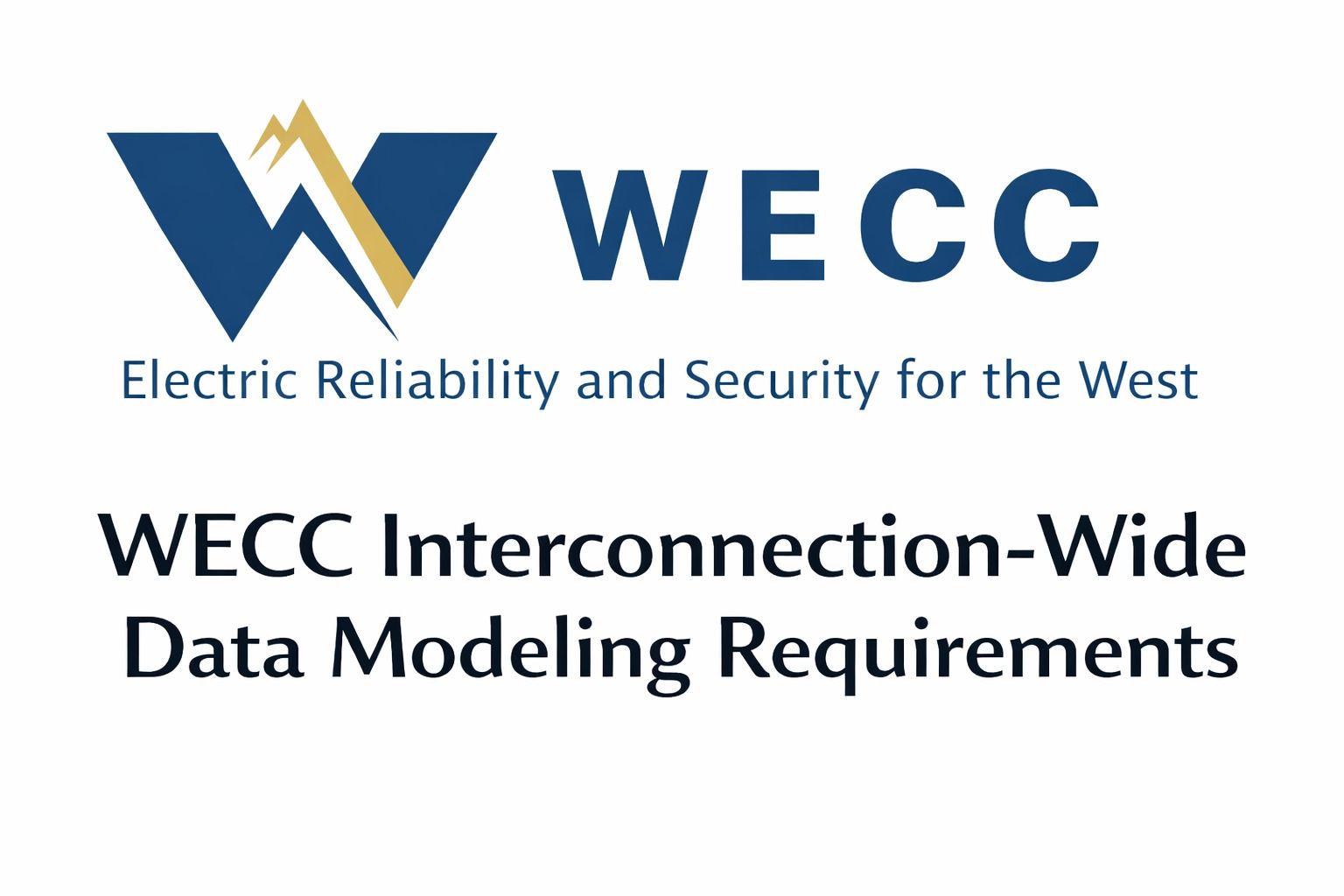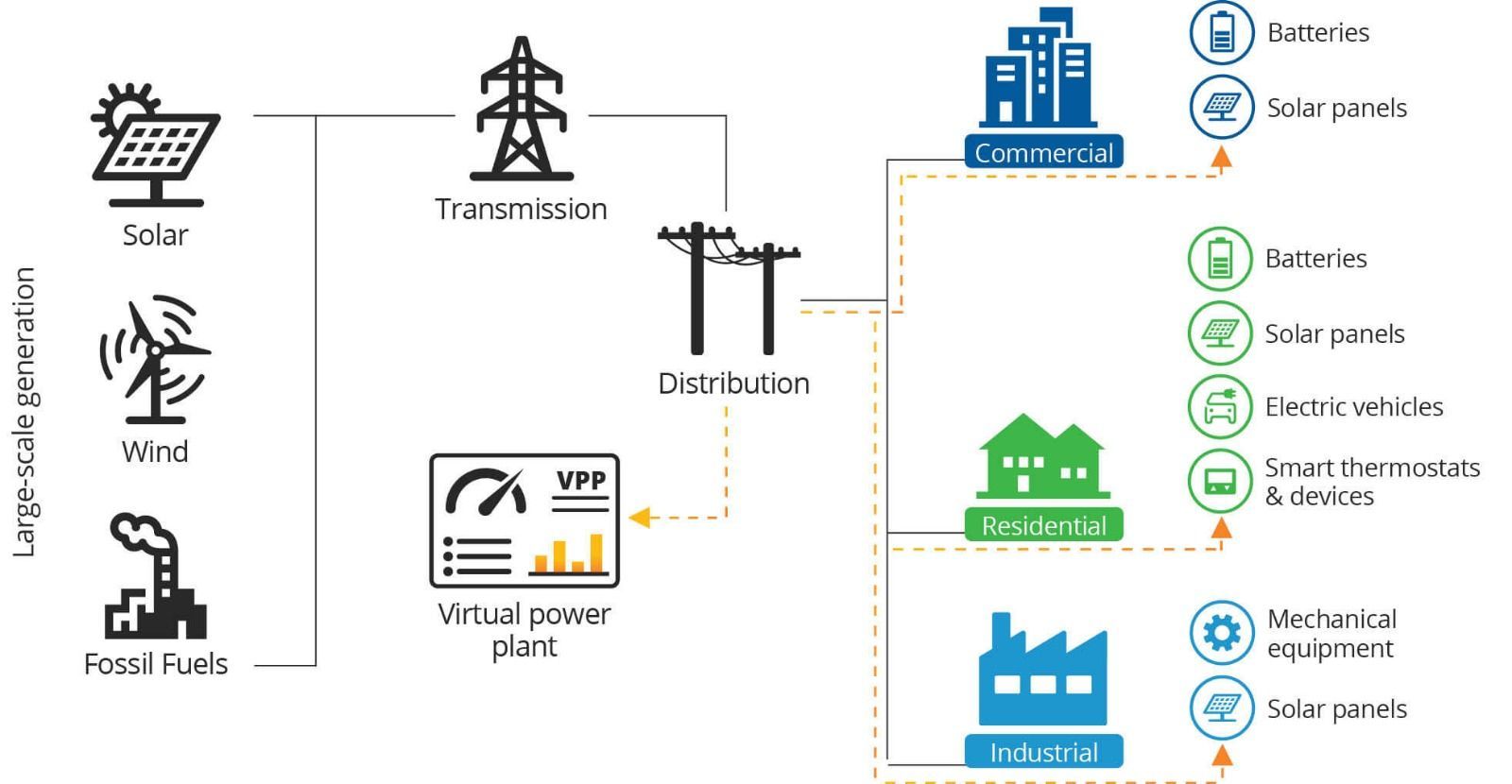A Coordinated Electric System Interconnection Review—the utility’s deep-dive on technical and cost impacts of your project.
The Importance of Electrical Power System Studies and Analysis
January 24, 2022 | Blog

A power system study is crucial for the electrical power system design process. The study comprises many engineering analyses, investigations, and data collections. However, the purpose of this study nonetheless is to ensure that you have an efficient, reliable, and safe power system for your facility under all types of normal and abnormal conditions.
From an engineering standpoint, the importance of power system analysis lies in its ability to evaluate electrical performance before failures occur. Electrical power system analysis provides a structured approach to validating system behavior across operating scenarios, ensuring that electrical power system studies support safe design decisions, regulatory compliance, and long-term asset reliability.
Importance of a Power System Study
A power system includes subsystems such as generation, distribution, and transmission. The importance of a power system analysis is to:
- Execute or model per-phase analysis of the components of the power system
- Monitor voltage at reactive and real power flow at different buses
- Plan the current system expansion for the future
- Analyze the power system under normal and abnormal conditions
- Design and develop protective device coordination and its settings
In practice, power system design analysis and power system design evaluation are performed together to verify that proposed system configurations can withstand operational stresses, future expansions, and abnormal events. These studies form the technical foundation for power system analysis testing conducted during commissioning and system upgrades.
Explore our Power System Studies Service
It won’t be wrong to say that power system studies are crucial for protecting electrical infrastructure. A power study may come in handy to ensure a dependable operation of protective devices when there is a fault current or short circuit.
For industrial and commercial facilities, a facility power study is often required when adding new loads, modifying protection schemes, or upgrading equipment. A structured power system upgrade workflow relies on updated system models to minimize downtime, maintain safety margins, and ensure seamless integration of new assets.
However, as recommended by OSHA and NFPA 70E, you are required to carry out a complete arc flash study every five years to ensure worker electrical safety. An arc flash study includes all power system studies needed for the power system facility. In other words, if you carry out an arc flash study with the recommendations, you are likely to cover the majority of the parts of the power system study for LV and MV.
These studies are commonly aligned with safety and design requirements referenced by organizations such as OSHA, NFPA, and IEEE-recommended practices, reinforcing their role in both regulatory compliance and engineering best practice.
For owners of battery energy storage systems, we also recommend reading our guide:
Why Power System Analysis Is Important for BESS Owners.
What Does a Power System Study Include?
The types of power system studies performed depend on system voltage level, complexity, and operational objectives. From LV installations to HV power system studies and MV power system studies, each analysis targets specific risks such as protection miscoordination, thermal overloads, or voltage instability.
To sum it up, the ultimate purpose of a power system study is to gather the information that can help you make the right decisions about the electrical distribution system. Power system studies include everything:
- Harmonic analysis
- Transient and dynamic analysis
- Earthing studies
- Load flow analysis
- Short circuit and fault analysis
- Settings and coordination of protective devices
- Insulation coordination and voltage switch over
Power system protection analysis is particularly critical for substations, where fault levels, breaker duties, and relay coordination must be evaluated together.
Power system studies for substations help ensure selective protection operation while maintaining continuity of supply during fault conditions.
Need fault and load flow insights? Visit our guide on Load Flow Studies in Electrical Power Systems
Software Programs Used to Conduct Power System Studies
To conduct reliable electrical power system studies, you need expertise, experience, and the right software. Though there are many software programs available in the market, the industry-leading programs include:
- ETAP
- EasyPower
- SKM
- PSSE
- DIgSILENT
These tools also support NERC-compliant modeling. Learn more on our NERC Compliance Services
At Keentel Engineering, we are the leaders and top choice for power system studies and its analysis. Contact us today for assistance.
Technical Applications and Real-World Importance
Electrical power system studies are critical for safe and stable grid operation. In real-world applications, engineers rely on these studies to:
- Model electrical power systems during project design and grid integration
- Assess short circuit levels and fault current ratings across circuit breakers
- Evaluate voltage drops and harmonics in high-load conditions
- Conduct coordination studies to ensure protective devices trip selectively
- Perform arc flash studies to meet OSHA and NFPA 70E compliance
- Ensure transformer sizing, power factor correction, and backup systems are correctly configured
- Analyze stability studies under abnormal conditions such as sudden load shedding or switching events
See how we applied these studies in our PSCAD Power System Case Studies
For asset owners, the importance of power system analysis becomes evident during capacity expansions, renewable integration, or system upgrades. Every accurate analysis leads to fewer outages, safer operations, and better planning.
Conclusion
To conclude, electrical power system studies are not optional—they are foundational for ensuring grid reliability, equipment protection, and electrical safety. Whether it’s a load flow study, arc flash review, or short circuit simulation, each analysis provides critical data to guide safe and cost-effective decision-making.
Why Choose Keentel Engineering for Power System Studies?
At Keentel Engineering, we specialize in delivering precise, code-compliant electrical power system studies tailored to your facility’s needs. Here's why engineers, utilities, and facility managers across the U.S. trust us:
- Expertise Across Voltage Levels: From LV panels to HV transmission, we analyze full system behavior using industry-leading tools.
- IEEE-Compliant Methods: We follow IEEE 3002.2 and NFPA 70E standards to ensure regulatory compliance, worker safety, and accurate simulation.
- Advanced Software Tools: We use ETAP, SKM, EasyPower, DIgSILENT, and PSSE for high-resolution results.
- Multi-Study Support: We perform short circuit analysis, arc flash studies, load flow, coordination, harmonics, and more — all in one package.
- BESS, EV, and Renewable Expertise: Whether integrating solar, battery storage, or electric vehicle infrastructure, we tailor studies for future-ready networks.
Keentel Engineering is your trusted partner for reliable, professional, and future-focused power system study services
FAQs
Why do we need power system studies?
Power system studies are essential for ensuring that an electrical system can operate safely and efficiently under different load and fault conditions. They help engineers plan, protect, and optimize the entire network.
What are electrical system studies or power system studies?
Electrical system studies — also called power system studies — involve simulations and calculations to understand how an electrical network behaves under various operating scenarios. These studies ensure reliability, safety, and compliance.
Why is power system analysis important?
Power system analysis verifies that all components — transformers, conductors, breakers, and relays — are properly sized and coordinated. It helps detect weaknesses, improve safety, and prevent equipment failure.
What are the benefits of a well-designed power system?
A well-designed power system offers:
- Greater reliability and fewer outages
- Higher energy efficiency
- Scalable infrastructure for future expansion
- Compliance with safety standards like OSHA and NFPA 70E
What is the main objective of a power system?
The primary goal is to deliver electrical energy to users in a cost-effective, safe, and reliable manner — maintaining voltage stability, proper load flow, and equipment protection.
What are the three main types of power system analysis?
- Load Flow Analysis: Assesses system behavior under varying demand.
- Short Circuit Analysis: Evaluates fault conditions and system protection.
- Coordination Studies: Ensures protective devices operate correctly and selectively.
What is the basic concept of a power system?
A power system is a network that generates, transmits, and distributes electricity. It includes components like generators, substations, switchgear, transmission lines, and end-use loads.
What is the role of a power management system?
Power management systems monitor and control electrical distribution networks. They improve efficiency, ensure safety, and reduce the risk of faults, fires, or equipment damage.

About the Author:
Sonny Patel P.E. EC
IEEE Senior Member
In 1995, Sandip (Sonny) R. Patel earned his Electrical Engineering degree from the University of Illinois, specializing in Electrical Engineering . But degrees don’t build legacies—action does. For three decades, he’s been shaping the future of engineering, not just as a licensed Professional Engineer across multiple states (Florida, California, New York, West Virginia, and Minnesota), but as a doer. A builder. A leader. Not just an engineer. A Licensed Electrical Contractor in Florida with an Unlimited EC license. Not just an executive. The founder and CEO of KEENTEL LLC—where expertise meets execution. Three decades. Multiple states. Endless impact.
Services

Let's Discuss Your Project
Let's book a call to discuss your electrical engineering project that we can help you with.

About the Author:
Sonny Patel P.E. EC
IEEE Senior Member
In 1995, Sandip (Sonny) R. Patel earned his Electrical Engineering degree from the University of Illinois, specializing in Electrical Engineering . But degrees don’t build legacies—action does. For three decades, he’s been shaping the future of engineering, not just as a licensed Professional Engineer across multiple states (Florida, California, New York, West Virginia, and Minnesota), but as a doer. A builder. A leader. Not just an engineer. A Licensed Electrical Contractor in Florida with an Unlimited EC license. Not just an executive. The founder and CEO of KEENTEL LLC—where expertise meets execution. Three decades. Multiple states. Endless impact.
Leave a Comment
We will get back to you as soon as possible.
Please try again later.














